Liver Detox: What You Need to Know
The liver is the largest organ in your body. A healthy liver can neutralize 99% of toxins on the first pass through. Yes, toxins can pass through the liver more than once. If your liver becomes damaged the toxin levels can increase x10!
Your liver goes to work detoxing when you are asleep. If you have difficulty sleeping and wake up always around the same time at night it could mean that your liver is working harder than it should.
Everyone talks about “doing a detox” or a “liver cleanse”. Once you read this article you will realize that doing a short- term detox for the liver probably isn’t going to be very effective in the long run. Dietary changes and key nutrients are critical daily. Your liver filters toxins that will end up as waste via the bowels or the urine but you also have other detox pathways that should be supported as well. You need all of them to function properly.
The Two Phases
A toxin is anything that creates harmful effects to your body. Your liver disassembles toxins and does this in a two- stage process. Most toxins are fat soluble and they need to be in a water- soluble state to be eliminated from the body. It is important that both detox phases are working. For instance, phase 1 may break these toxins down but if phase 2 cannot bind these toxins to other things to make then inert and then eliminate them then these broken-down toxins can be harmful.
Your liver’s two phases of detox can detox chemicals such as pesticides and herbicides, heavy metals, food additives, toxins from the GI tract, drugs/medications, metabolic waste products and used hormones and neurotransmitters. As you can see some of these toxins are endogenous and others are exogenous.
What Can Impact the Liver Detox Pathways
- Stress! This alone can shut down detoxification
- Aging: Decreases detox enzymes
- Meds such as benzodiazepines, antihistamines and stomach acid secretion blocking drugs inhibit phase 1.
- Grapefruit juice inhibits phase 1. (some medications should not be taken with grapefruit juice for this reason)
- Heavy alcohol use/abuse
- Long term medication use
- Standard American Diet-a diet filled with hormones, antibiotics, rancid oils, excess sugar etc..
- toxins from water, cleaning products, skin care products, plastics
- lack of fiber in the diet
Signs Your Liver Isn’t Working the Way It Should
- Sensitivity to chemicals, tobacco smoke, perfume, cleaning products
- Pain between shoulder blades
- Stomach upsets when eat greasy foods
- Greasy, shiny stool or see oily droplets with stool
- Motion sickness, morning sickness
- Light or pale colored stools
- Headaches over the eyes
- Gallbladder attacks
- Bitter taste in mouth after meals
- Sick easily after drinking wine
- Easily hung over
- Pain under right side of rib cage
- Varicose veins, hemorrhoids
- Artificial sugar consumption esp. NutraSweet/aspartame
- Chronic Fatigue or fibromyalgia
Phase 1 of Liver Detoxification
- Phase 1 is called the Cytochrome P450 pathway. This is made up of a group of over 50 detox enzymes that are induced when there is exposure to a toxin.
- These enzymes will then convert these toxins from fat soluble to water soluble.
- Issues can arise if you have either an over active or under active phase 1.
- If your phase 1 is underactive, your risk of liver disease increases
- Phase 1 will always create some free radicals.
Signs You Have an Under Active Phase 1
You have an intolerance to caffeine, perfumes or environmental chemicals. For instance, you can’t tolerate more than a cup of coffee or you feel jittery. You are sensitive to chemical and perfume smells and they may give you a headache, skin rash or affect your breathing. Some people who smoke may not be as affected as those with an underactive phase 1. These people who smoke may have lung issues much sooner than those with a healthy phase 1. Part of this is due to genetics, but diet and lifestyle also play a large role.
These are signs that you may have a weak phase 1, meaning that you are not fully breaking down your toxins. Those with an underactive phase 1 may also have issues detoxifying alcohol.
Signs You Have an Over Active Phase 1
These are the people that tell you they can drink caffeine all day and are not affected. They may even have coffee right before bed and can still go right to sleep. These people tend to have an over active phase 1 and an underactive phase 2.
Foods to Eat to Get a Sluggish Phase 1 Moving
- Cruciferous vegetable such as broccoli, Brussel Sprouts and cabbage.
- Oranges, tangerines
- Dill seed and caraway seed
- Foods that contain B vitamins (or take a B complex), Vitamin C, Vitamin E, Iron and magnesium
- glutathione (best source is grass fed why protein powder) which is a potent antioxidant
- SOD (Superoxide dismutase) an antioxidant enzyme in the body but you can also consume foods rich in copper, zinc, and manganese to help boost SOD. These foods include crimini mushrooms, steel cut oats, green beans, white basmati rice, asparagus, sesame seeds, strawberries, and pineapple.
- Flavonoids-think eat a rainbow of colorful fruit and veggies
If your phase 1 is over active, you can use calendula and turmeric to slow it down.
Phase 2 of Liver Detoxification
This phase joins the toxins into pairs with a compound for it to be excreted by the body. What it joins with depends on the pathway of which there are 6. The methylation pathway, sulfation pathway, glucuronidation pathway, glutathione pathway, acetylation pathway and the amino acid pathway.
Typically when problems occur in phase 2, it is underactive and it is not common for this phase to be overactive.
1. Methylation Pathway
This pathway detoxes estrogens, some neurotransmitters, histamine and some toxic metals.
To support this pathway, opt of a methylated B complex product, along with foods such as eggs, beans, fish, onions, garlic, grass fed dairy and grass fed organic meat, leafy greens. Also include adequate amounts of protein and magnesium. (Majority of people will need to supplement with magnesium)
Having a poor functioning methylation pathway can lead to degenerative diseases such as dementia, cancer and CVD.
2. Sulfation Pathway
This pathway detoxes bile acids, some neurotransmitters, some medications and chemicals and some hormones such as estrogens, testosterone, and thyroid hormone.
To support this pathway, consume egg yolks, onions, garlic, cruciferous vegetables and grass fed, organic dairy
3. Glucuronidation Pathway
This pathway detoxifies some common medications such as aspirin, acetaminophen (Tylenol), morphine and diazepam (Valium) as well as food additives and some hormones. Fluoride, aspirin and a medication called Probenecid (used for Gout) can suppress this pathway.
Support this pathway by adding in SAMe and calcium D-Glucarate
4. Glutathione Pathway (GSH)
GSH is a powerful antioxidant found in the mitochondria of every cell and is a powerful detox agent. In the liver it conjugates up to 60% of the toxins in the bile. High toxin levels and/or extensive fasting can deplete your GSH levels. If you are deficient in zinc, selenium, B2 or B6, this can inhibit this pathway.
GSH will help to detoxify the body from some medications, nicotine, bacterial toxins, toxic metals, ethyl alcohol and more.
Add in grass fed whey protein powder, sulfur rich foods such as egg yolks, onion, garlic and cruciferous vegetables, and vitamin C rich foods such as peppers and citrus.
5. Amino Acid Conjugation
This pathway detoxes aspirin, nicotinic acid, plant fatty acids and Benzoate. This pathway can be inhibited by a low protein diet. This pathway may function poorly if you have alcohol related liver issues, hypothyroidism, chronic arthritis, excessive chemical exposure, hepatitis, or carcinomas.
Support this pathway by increasing the amount of protein you consume. Ideally sources that contain glycine, taurine, glutamate and arginine. Grass fed Whey or bone broth are good options to add in.
6. Acetylation Pathway
This pathway detoxes sulfa drugs, other medications, serotonin, histamine, choline, caffeine and tyramine.
This pathway is dependent upon Vitamin C, Vitamin B12 and Vitamin B5.
How do you know which pathway you should address? The odds are you may have more than one pathway that is being inhibited. It is important to add in the needed supplements and consume a whole food, healthy diet. There are supplements that contain herbs, vitamins and minerals that support both phase 1 and phase 2.
Why Detoxification is So Important
Your body is constantly detoxifying and ridding itself of harmful substances. Your health is so dependent upon the effectiveness of these detox pathways. Just one phase or one pathway not functioning properly can lead to health issues.
And it can lead to not only physical health issues but mental health ones as well. Your body can accumulate toxins in your fatty tissues for years. This isn’t just that belly or hip fat, but also the fat in your brain and endocrine glands. Toxin accumulation can lead to brain dysfunction, hormonal imbalances, exhausted adrenal glands, early menopause and premature aging.
While the body is a detox machine with its various pathways, modern life can place a burden on these pathways causing a toxic overload where the body cannot keep up. Our bodies were not made to handle the constant attack of toxins coming at us daily from our food, water, air, soil, body and household products.
The liver is a very important detoxification organ, but remember that it is not the only detox system that you have. Other pathways include the respiratory system, gastrointestinal systems, urinary, skin and lymphatic system.
Try to reduce the burden placed upon your liver (and other detox pathways for that matter)d. Avoid eating and drinking out of plastics and don’t ever microwave food in plastic. Also, don’t put plastic containers in the dishwasher, and instead wash these by hand. Switch over to a filtration water system for your home and take water with you when you are out and about. Read labels so that you can avoid many food additives, chemicals, dyes and artificial sugars. Purchase organic as much as you can and opt for grass fed meats and dairy. Reduce or eliminate caffeine and alcohol.
Because it can be expensive and difficult to know what supplements you need, I like a product called Detoxification Factors Phase 1 and Phase 2 by Integrative Therapeutics and this can be purchased via my online apothecary fullscript.com
Bottom Line: You cannot avoid all the toxins that you are exposed to unless you want to live life in a bubble, but you can reduce exposure by addressing the toxins you have control of. By getting adequate amounts of exercise and movement into your life, using relaxation and stress techniques, choosing safe products and eating a whole foods diet along with targeted supplementation, you will be supporting all your pathways by limiting the toxic burden placed upon them.
Sources
Bauman, E. & Friedlander, J. (2014) Therapeutics in Nutrition. CA: Bauman College.
http://www.gilbertssyndrome.com/detoxification.php
https://www.hindawi.com/journals/jnme/2015/760689/
If you are sick and tired of feeling sick, tired, fatigued, depressed, anxious and more and have given up hope then Karen’s simple, effective, individualized and sustainable approach may be what you need.
Karen Brennan, MSW, CNC, Board Certified in Holistic Nutrition and Herbalist is the author of Tru Foods Depression Free Nutrition Guide; How Food Supplements and herbs can be used to lift your mood and If Life is So Good, Then Why AM I Still Depressed? Discover the root cause for your depression and learn what to do to feel better and owner of Tru Foods Nutrition Services, LLC.
For more information visit www.trufoodsnutrition.com
Want more information, like her fb page here
As a nutrition professional, Karen does not treat, cure nor diagnose. This information is for educational purposes only.

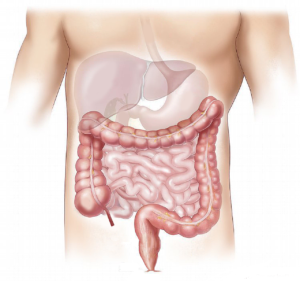
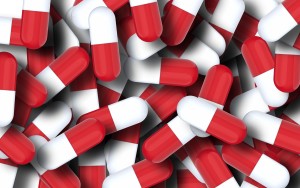

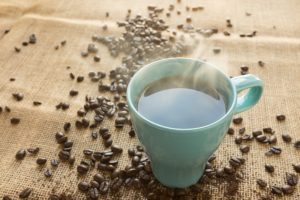
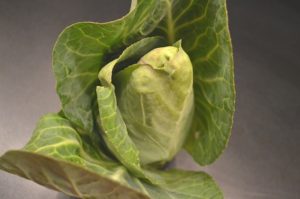
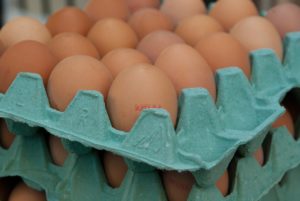
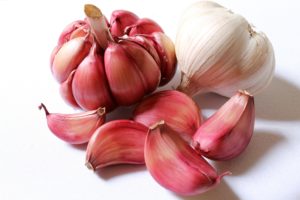

Leave A Comment
You must be logged in to post a comment.